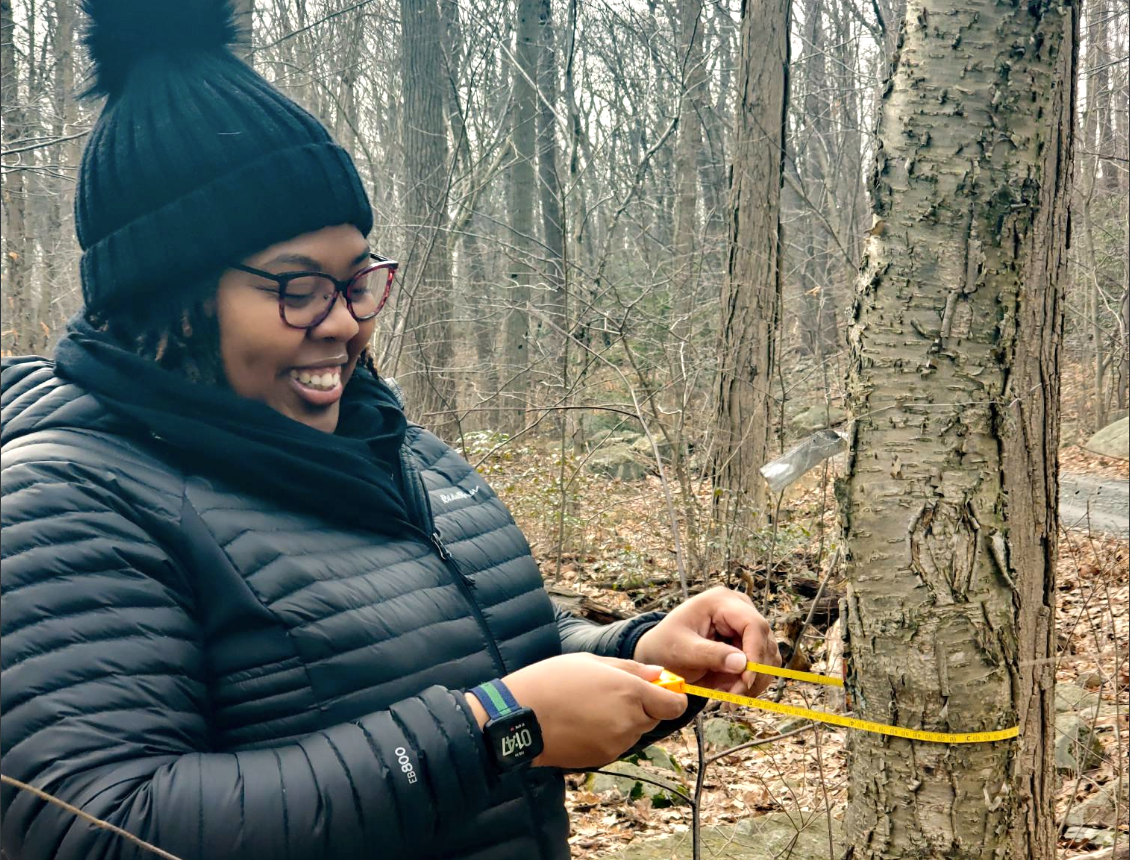While California’s native grasslands tend to be more reliable carbon sinks than our woods, the forests of the northeastern United States are one of the fastest-growing terrestrial carbon sinks globally, attributed to historical declines in large-scale agriculture, timber harvesting and fire disturbance. However, climate-induced tree migration is altering forest community composition and carbon dynamics. An investigation into tree physiological responses to temperature across resident and migrant trees in a northeastern US forest revealed evidence suggesting that resident trees may have a physiological disadvantage compared with their migrant counterparts. Compounded with this result, an array of ecological disturbances further threatens the dominance of resident species, resulting in species replacement that may reduce the carbon storage potential of northeastern US forests.
Dr. Angie Patterson is Curator of Education and Outreach at the Miller Worley Center for the Environment at Mount Holyoke College, and Principle Investigator for The Virtual Field RCN-UBE Project “Undergraduate Virtual Experiences as a Recruitment Tool for Underrepresented Students in STEM”

Registration Link: https://cei.sonoma.edu/forest-trees
Event Duration: 1 - 3 hours
Date: November 4, 2024
Time: 12:00 pm
End Time: 1:00 pm
Time Zone: PT